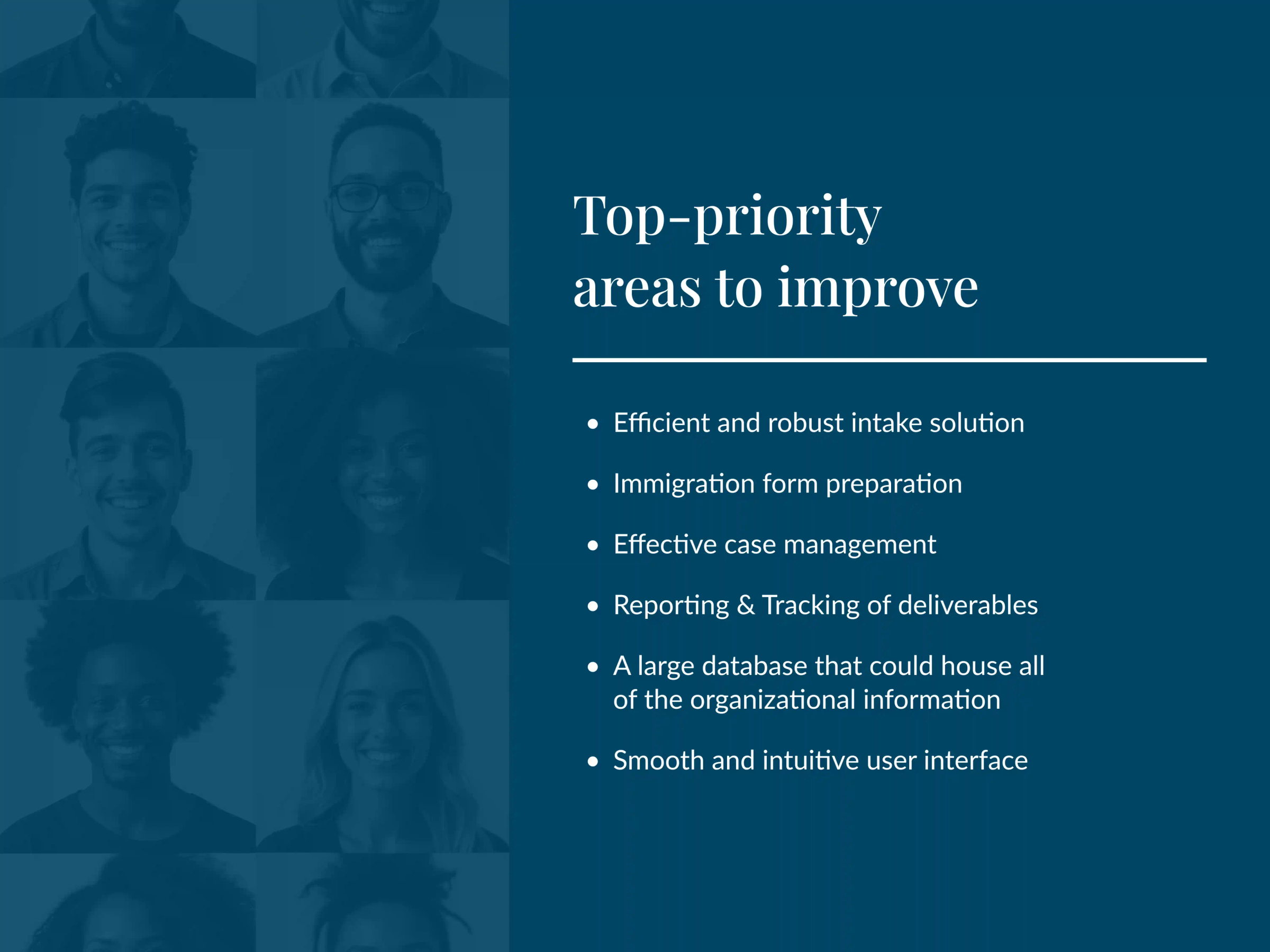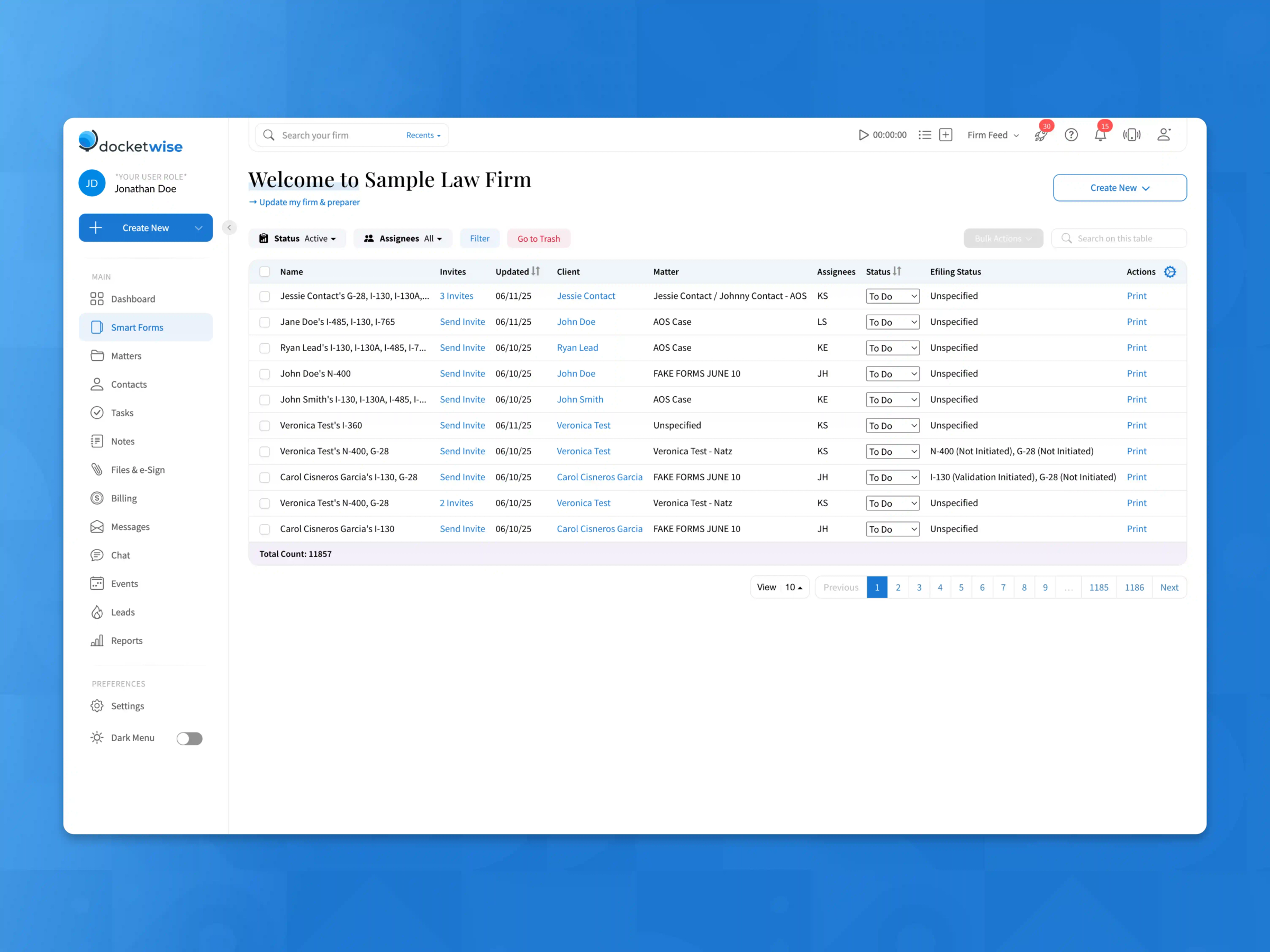Knowing that the data going in is so much better has been enormously helpful.
Laura Shaw Data and Impact Analytics Manager, IJC
The Client
Immigrant Justice Corps (IJC) is a non-profit law organization and fellowship program. IJC gathers the most talented immigration lawyers and supports them in serving immigrants. Headquartered in New York City, it's the only fellowship program of its kind.
IJC offers two fellowship programs. The first is an in-house program where recent college graduates work under the supervision of IJC's immigration attorneys. The second is where is an out-placed program where recent law school graduates work as fellows at a host organization.
IJC is heading into its eighth year of service.
The Problem
For IJC, being a non-profit organization and a fellowship comes with two apparent difficulties. The first is that as a non-profit organization, IJC must report on and meet specific deliverables and metrics to secure funding. The second is that fellowships are limited in duration. The fellows only stay for two years before rotating out.
Before starting with Docketwise, IJC used a mix of in-house and homegrown solutions for nearly everything, including their database, workflows for the fellows to follow, intakes, form preparation, and tracking and reporting on their deliverables. Not having the right tools led to less buy-in from the fellows to follow procedures for handling cases and unable to track essential deliverables.
Their tools made it difficult to standardize procedures and led to less-than-optimal information tracking and record-keeping across the team, costing significant time. Additionally, the fellows (and therefore the organization) could not function to their full potential without the right tools and procedures.
The Discovery
It became apparent that the tools and platforms IJC was using at the time were holding them back. Enter Laura Shaw, Data and Impact Analytics Manager at IJC. When Laura started at IJC in 2019, one of her first projects was finding and implementing a solution better aligned with their needs. The stakes were high, and Laura hinged on choosing the right software.

Efficiency, reporting, and ease of use were important for IJC.
Laura conducted an internal needs assessment with the different departments within IJC. The top requirements needed were:
Efficient and robust intake solution
Immigration form preparation
Effective case management
Reporting and tracking of deliverables
An extensive database that could house all of the organizational information
Smooth and intuitive user interface
After identifying the requirements, Laura conducted further research and consulted with IJC's host and partner organizations to get insight into what software they were using for case management and form preparation, as well as their experiences and feedback on those platforms. After thoroughly researching the options and demoing a couple, it became clear that Docketwise was the best overall choice.
The Solution
Once IJC implemented Docketwise, buy-in from the fellows across the organization significantly increased thanks to its ease of use and efficiency. Features such as Custom Intakes and Smart forms make it so efficient and save so much time that it leaves no other alternative. This increased buy-in allowed IJC to implement comprehensive and standardized workflows, empowering the fellows and increasing quality and efficiency within the organization.

IJC uses the Matter Workflows feature to standardize the procedures for fellows to follow as they work on a case from its inception to completion. And as a case progresses, Matter Workflows automatically creates forms and documents related to the tasks at hand.
Since switching to Docketwise, reporting on and tracking the information on the deliverables necessary for grant reporting for IJC has been an enormous help to the organization. IJC uses a combination of Custom Attributes, Matter Workflow, Firm Branches, and Reports within Docketwise to track these deliverables effectively.
IJC uses over 30 matter types to track their fellows' case work accurately. Additionally, with matter statuses, visualizing case progress and completion over the fiscal year is easy to follow. The Custom Attributes feature gives IJC another layer to its reporting, unlocking the potential to report on any custom field and track the work done by each branch of the organization.
